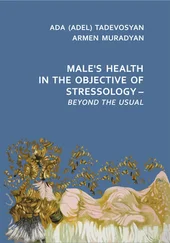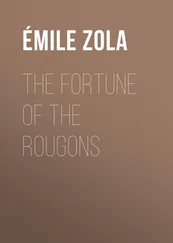Paul tried to confirm where Ann’s “causes” were now. But she gave him only vague directions (“You know I haven’t decided yet, I’m not sure, we’ll see…”) and even if, out of carelessness or indifference, she told him with precision of the spot where her current cause was located (“Look, towards Filaret, past the yellow house, where I fell last autumn — you remember? — when I tore the buckle off my antelope pumps”), he knew all too well that it would be useless to look for her because he wouldn’t find her there and because two days later she would be sincerely surprised: “What? You went? Oh, how silly you are… I got a headache… I changed my mind at the last minute… I couldn’t go… Didn’t I tell you not to go?”
Ann’s causes had become a pretext and now “to go out for the cause” was the most comfortable way for her to lie to him.
He hadn’t seen her for a week when one morning, glancing at a newspaper, her name, printed in small letters in the news section, jumped out from the page. It was an article on the Romanian pavilion at the 1934 Liège World’s Fair, a sort of official press release to the World’s Fair Organizing Committee through which it was announced that painters and sculptors charged with decorating the interior of the pavilion would be leaving for Brussels in five days: Saturday, May 12 at 9:50 AM . Among the decorators chosen was Ann.
Paul had thought it was a mistake, as he couldn’t imagine that Ann would have left him to find out something so important from the newspapers nor that with such an important departure so close at hand she would have let a whole week go by without seeing him, even if for some stupid reason, they had quarrelled recently.
“Is this true? You’re leaving?” he asked her on the phone, with the newspaper still in his hand and his eyes fixed on the astonishing news.
“Oh, I don’t know,” Ann replied evasively, “it’s not certain yet, it could be, but for the time being nothing’s finalized. If something happens, I’ll tell you. Look, let’s meet tonight… Or no, not tonight, in fact I’m meeting the architect of the pavilion, but call me tomorrow morning, or, better yet, let me call you… I’ll be sure to call you, all right?”
The five days prior to the departure had passed slowly, waiting every second, holding his breath at each footstep on the stairs, each rumble of the elevator, each ring of the telephone, for the question was no longer whether Ann was going to leave for Liège, but rather — more simply, more urgently and more painfully — whether she was going to come to see him, whether she was going to call him, whether she was at least going to send him some word, some sign. He was afraid of leaving home or leaving the office — the only two places where she could phone him — in case her long-awaited call should finally come in his absence, and when in spite of this he was obliged to go out into the city, he drove cab drivers to distraction by telling them to get him home in a hurry, where the same waiting, the same watch, would begin again. Hundreds of times he had lifted the receiver to call Ann, hundreds of times he had started to compose that number that obsessed him like a name, but he never dared to dial it right through to the end. What would she have said to him, this Ann who hid from him, and who prepared her flight like a fugitive?
Yet sometimes the telephone rang, and he couldn’t suppress the nervous shudder of fear and hope that later struck him as ridiculous when it turned out to be a wrong number or some call without importance — everything else was without importance.
It’s absurd and unforgivable, as if I were a schoolboy, as if I were twenty, I need to understand that it’s no longer like that, something has to change … He promised himself that he would be calm, and in fact when the telephone or doorbell rang again, he let it ring for a while before lifting the receiver or opening the door because he wished in that way to prove that he was in control of himself, but also because for a few seconds he could say to himself, in a childish way: it could be she… it might be possible that it’s she…
Even so, sometimes, from superstition, spite or just fear of once again being disillusioned, he let the telephone ring without responding, waiting for the caller to give up. Yet in the moment in which he heard the snap that interrupted communication, in the moment in which the telephone fell silent, the thought that this time it had been Ann, who had not replied to him, and that by doing this he might just have lost what could have been his only opportunity to speak to her and see her, gave him an unbearable feeling of misfortune, like that of a passionate poker player who, having just said, “Pass” out of superstition, is startled by the intolerable thought that the cards he has tossed down without looking at them were precisely the four-of-a-kind or royal flush that would have allowed him to rebound from a night of gambling that had left him ruined.
Ann’s departures! He knew them so well, so many times he had lived through their nervousness, their confusion. The suitcases that opened and closed noisily, the wardrobe with the doors opened wide against the wall, the dresses draped over the armchair, the girdles on the bed, the scarves tossed about wherever they happened to fall, the multicoloured train tickets flipped through with feverish agitation (“Is that all of them? You don’t think I’ve forgotten any?”), the last-minute purchases, the rushed errands in the city, the packages with which she returned home and which she never knew where she had put, where she got them from, what she should do with them…
He saw her heading down the streets, skipping from one taxi to another, stopping in front of shop windows, going into a store, forgetting why she had gone in, scatterbrained, delighted, exhausted, full of worries, curiosity, expectations… It would have been so easy, it would have been normal for her during one of those errands to suddenly remember him with that irritated shudder she had when she remembered something, closing her eyes and, in a childlike gesture, raising her hand to her forehead — “Oh, what a scatterbrain I am!” — and then from the first public telephone (“For goodness’ sake, the city’s full of telephones!”) to call him and to finally say to him: “Wait for me, I’m coming over.”
With each hour that passed and made her departure more threatening, that Saturday, May 12 at 9:50 AM read in the newspaper, which initially had been an abstract date, something distant, shapeless, unlikely, acquired reality and became a fixed point, a sore point, difficult to look in the face. With each hour, each day, a feeling of consternation was added to Paul’s wait, as though confronted by a fact with an absurd outcome and which yet he could see reaching fruition beneath his dumbfounded gaze.
On the morning of her departure he watched on his clock the slow rotation of the minutes, the cogged, mechanistic movement of the seconds — as you waited for precisely midnight to turn out the lights on New Year’s Eve — and when those two hands had been precisely superimposed, showing ten minutes to ten, he picked up the receiver and called the information bureau to ask whether the Simplon had left.
“Yes, it’s left, it just started moving,” a clerk replied.
An absurd calm enveloped him, as though all his feverishness of the last few days had been stirred up only by a doubt as to whether or not on Saturday, May 12 the Simplon train was going to leave at its scheduled time of 9:50; now that what he had wanted to know belonged to the past, he could sleep and forget.
In an afternoon newspaper he saw the photograph taken in the morning on the platform of the Găra de Nord: The group of Romanian artists leaving for Belgium to work on our pavilion in Liège .
Читать дальше












